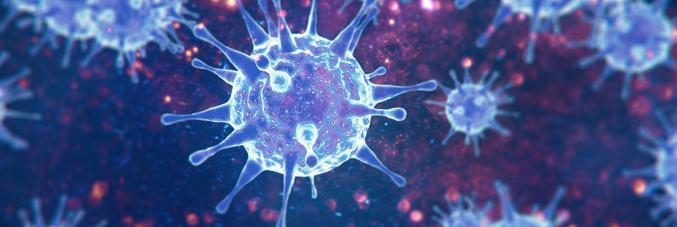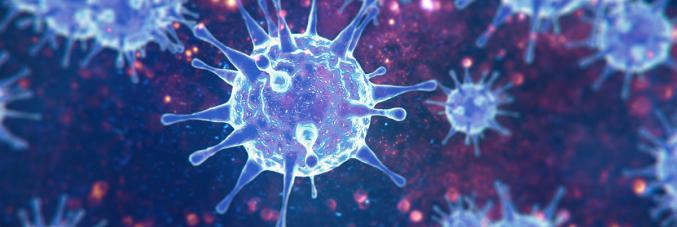
Unipd research. Thrombosis: the role of Mpro in the SARS-CoV-2 Coronavirus
08.08.2025
Thrombotic diseases are the leading cause of death and hospital admissions. They may arise as independent conditions or be associated with complications of other diseases such as type 2 diabetes, cancer, inflammatory autoimmune diseases, and amyloidosis. Clinical evidence also indicates that infectious diseases, caused by bacteria or viruses, are significant risk factors for thrombotic conditions. Coagulation, in itself, is a physiological process aimed at preventing blood loss from the cardiovascular system; however, when abnormally activated, it can lead to the formation of pathological clots (thrombi), which block blood vessels and cause tissue death downstream of the blockage.
The Covid-19 pandemic, caused by the SARS-CoV-2 coronavirus, highlighted the association between severe viral infection and thrombotic complications, as well as the strong correlation between the onset of these complications and mortality. In severe forms of Covid-19, there is a strong activation of the innate immune response and a massive release of pro-inflammatory proteins and peptides (cytokines and bradykinin), which in turn may trigger coagulation. SARS-CoV-2 infection thus indirectly increases the risk of thrombosis by inducing a strong inflammatory state.
Despite the fact that blood hypercoagulability is a hallmark of Covid-19, the molecular mechanisms through which SARS-CoV-2 infections trigger coagulation activation remain poorly understood.
A research team from the University of Padua, led by Vincenzo De Filippis of the Department of Pharmaceutical Sciences, has published a study in “The main protease (Mpro) from SARS-CoV-2 triggers plasma clotting in vitro by activating coagulation factors VII and FXII”(authors: Anna Pagotto, Federico Uliana, Elena Cavedon, Giulia Nordio, Andrea Pierangelini, Laura Acquasaliente, Maria Ludovica Macchia, Massimo Bellanda, Barbara Gatto, Giustina De Silvestro, Piero Marson, Dario Gregori, Paolo Simioni, Paola Picotti & Vincenzo De Filippis), which demonstrates that the virus can also directly activate the coagulation cascade and cause the formation of pathological clots.
This is achieved via the main protease, Mpro, an enzyme capable of cleaving chemical bonds within proteins. Specifically, Mpro generates the protein subunits that will later form the viral shell essential for the virus’s survival. Mpro, as previously shown, can be released by the virus into the extracellular space, circulating in the bloodstream and other biological fluids. This makes Mpro a promising molecular target for the development of new drugs aimed at inhibiting the enzyme and blocking viral maturation.

"Under physiological conditions, coagulation is triggered by the exposure of proteins located in the inner lining of blood vessels, leading to the activation of coagulation factors VII and XII. In our study, we demonstrated that Mpro causes human plasma clotting," explains Vincenzo De Filippis, coordinator of the research. "Specifically, Mpro is capable of activating coagulation factors at the exact same peptide bonds that are cleaved under physiological conditions and that trigger blood clotting.
Moreover, Mpro is produced by the SARS-CoV-2 virus, which belongs to the coronavirus family," De Filippis emphasizes. "Coronaviruses exhibit a high degree of genetic variability, which makes them prime candidates for new large-scale viral infections that could emerge in the future.
This study, which identifies a possible mechanism by which severe SARS-CoV-2 infections cause thrombosis, leads us to believe," De Filippis concludes, "that the development of drugs capable of inhibiting Mpro could not only block the maturation and replication of the virus, but also prevent the thrombotic effects associated with coronavirus infections."



